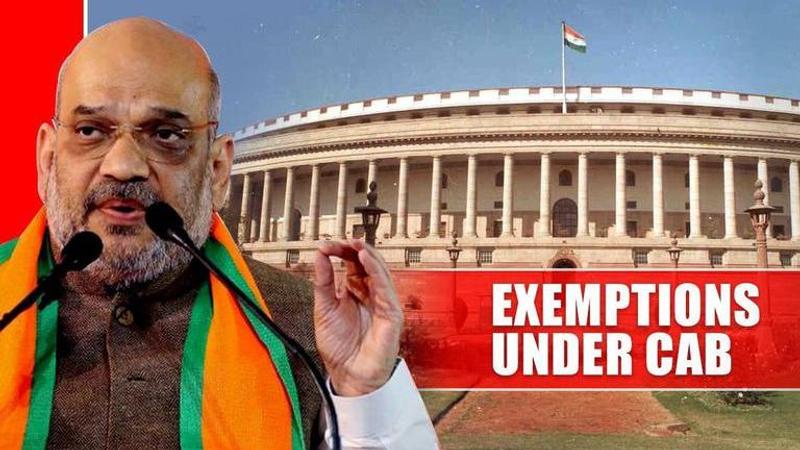Published 13:57 IST, December 8th 2019
Citizenship Amendment Bill DECODED: Before Monday tabling, here are the listed exemptions
With the Citizenship Amendment Bill to be tabled in the Rajya Sabha by Home Minister Amit Shah on Monday, the new draft's exemptions has piqued interest

With the Citizenship Amendment Bill to be tabled in the Lok Sabha by Home Minister Amit Shah on Monday, the new draft of the bill's exemptions has piqued political interest. Shah who met with the several Chief Ministers and politicians from the northeastern state politicians from November 29, has offered to exempt the inner line permit areas in Nagaland, Mizoram and Arunachal Pradesh and areas falling under the Sixth Schedule in the region from the Bill. While Arunachal Pradesh CM Pema Khandu has supported the Bill, the other leaders from Nagaland, Mizoram have openly revolted against the Bill.
What are the exemptions offered in the Citizenship Amendment Bill?
While the Bill was first introduced in the Lok Sabha in July 2016, this bill was referred to a Joint Parliamentary Committee which filed its report on January 2019. The Bill was then finally passed by the Lok Sabha in January 2019, but lapsed in the Rajya Sabha. The new draft which is to be tabled by the Home Minister has added exemptions for the northeastern states.
The Bill states, "Nothing in this section shall apply to Assam, Meghalaya and Tripura as included in the Sixth Schedule to the Constitution, and to the areas covered under the inner line notified under the Bengal Eastern Frontier Regulation, 1873."
Inner Line Permit (ILP)
The Inner line permit (ILP) currently existent in Nagaland, Arunachal and Mizoram, makes it mandatory for Indian citizens from other states visiting the three states to carry the document of ILP mentioning the areas they can visit and the duration of the visit. Moreover, reports state that long-time residents who do not belong to the 'indigenous' communities are required to carry the ILP and renew it every six months.
Sixth Schedule regions
Meanwhile, the Sixth Schedule of the Constitution defines the autonomous councils and districts in the tribal areas of Tripura, Assam, Meghalaya, and Mizoram which have the power of self-governance. Hence, in these specific areas non-local communities are barred from owning land and business in this area.
December 2014 cut-off
Several reports state that the politicians who attended the CAB meeting with Home Minister Amit Shah have claimed that the migrants who entered after December 31, 2014, would not be eligible for citizenship under the bill.
What does the bill state on citizenship?
The Bill amends the Citizenship Act 1955 to make refugees who are Hindus, Sikhs, Buddhists, Jains, Parsis and Christians from Afghanistan, Bangladesh and Pakistan, eligible for citizenship, as explained by PRS.
Updated 10:56 IST, December 9th 2019




